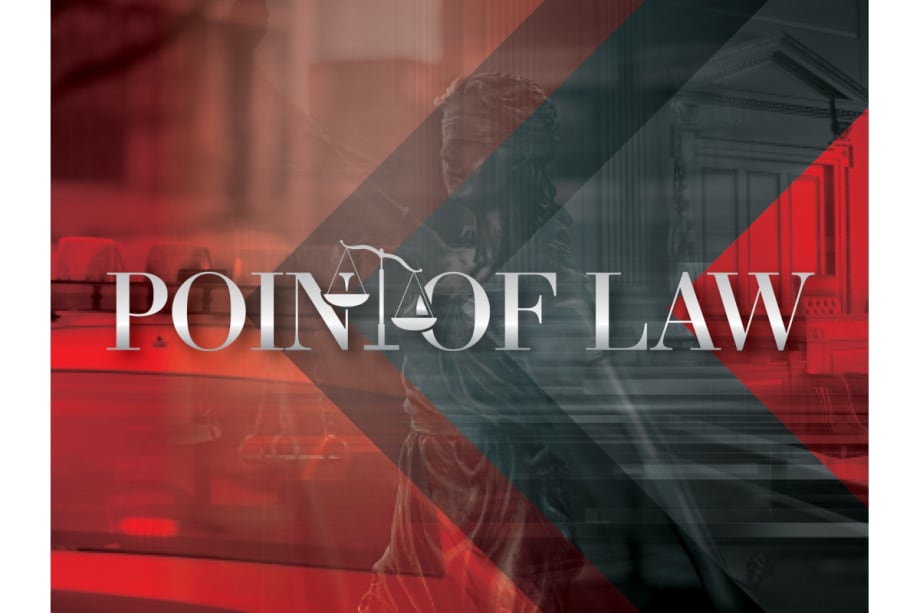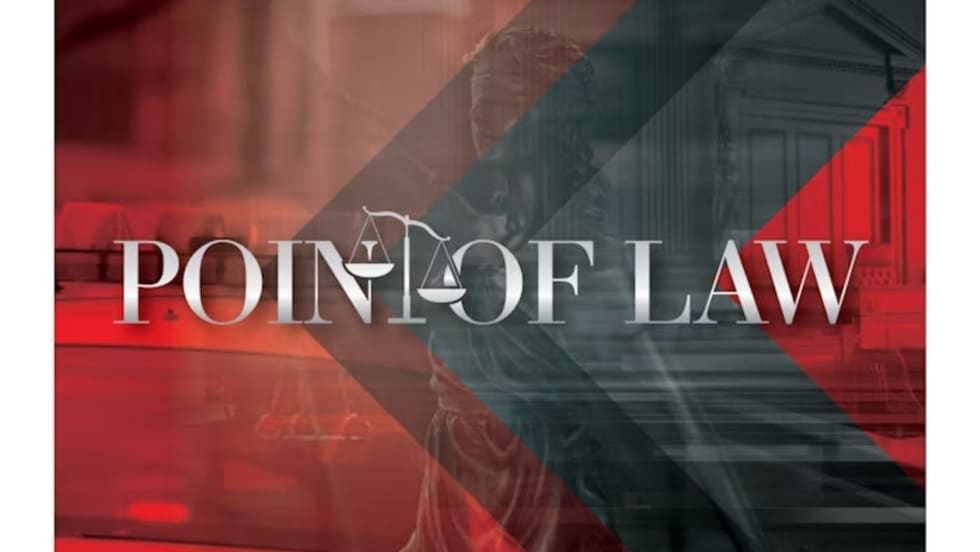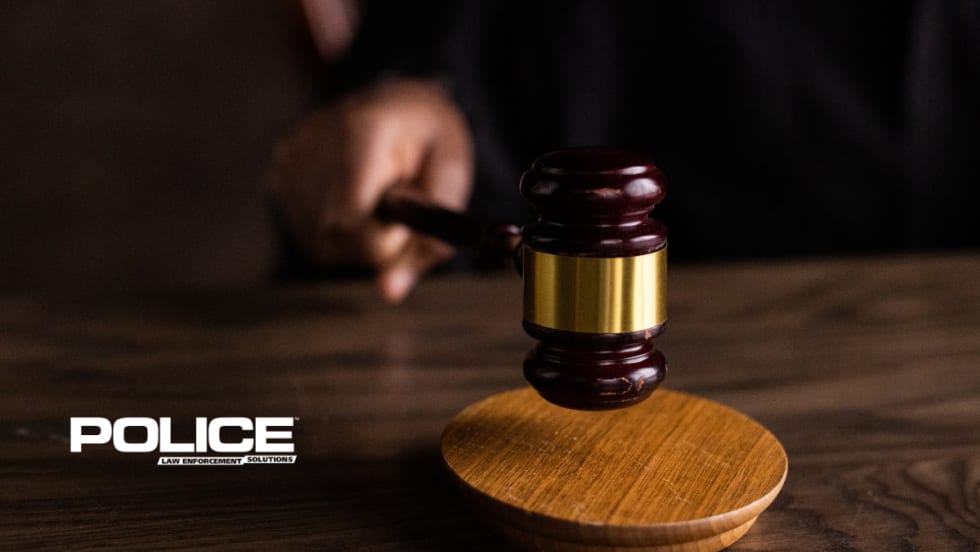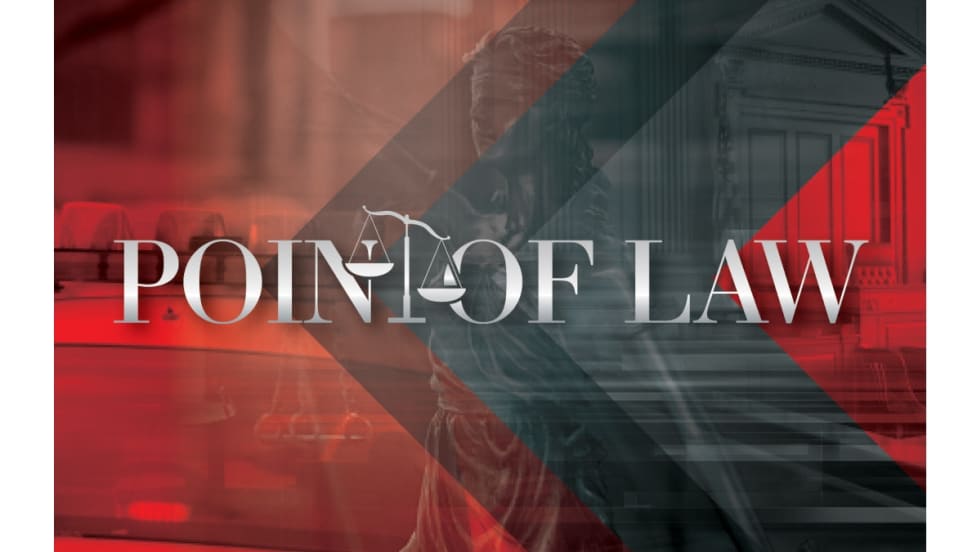In a recent case from the Seventh Circuit Court of Appeals, Pierner-Lytge v. Hobbs, the court addressed the implications for law enforcement officers when confronted with a situation that involves the open carry of firearms in public spaces, public safety, and the Second Amendment right to bear arms.
Point of Law: Policing Open Carry
A woman carried a rifle fixed with a bayonet into a public park, leading to 911 calls, deputies making an arrest, and a lawsuit.

POLICE
Pierner-Lytge was arrested by Milwaukee County Sheriff's deputies for disorderly conduct in a West Allis, WI, public park. Upon her arrest, the on-scene deputies seized her rifle, the bayonet that was attached to her rifle, her handgun, and a duty belt fitted with pepper spray and handcuffs, all of which were eventually returned to her after no official charges were brought.
She brought an action under 42 U.S.C. § 1983 against the two deputies involved, Montrell Hobbs and Fredrick Gladney, alleging that the arrest constituted a violation of her First Amendment and Fourth Amendment rights. The district court found that the deputies were entitled to qualified immunity. Pierner-Lytge appealed to the U.S. Court of Appeals for the Seventh Circuit, challenging the lower court’s grant of qualified immunity concerning her Fourth Amendment claim that the arrest occurred without probable cause.
The Case
Pierner-Lytge, a security officer and a steadfast supporter of the Second Amendment from West Allis, has had past encounters with law enforcement due to conflicts with neighbors and local community members over her public display of firearms, demonstrating her advocacy for the right to bear arms.
In April 2020, Pierner-Lytge left her home carrying a rifle fitted with a spike bayonet, a black semi-automatic handgun, a duty belt holding pepper spray, a baton, and two pairs of handcuffs. She visited a public park located near an elementary school with a playground and a baseball field occupied by many local families and children at that time.
Law enforcement received at least three reports from fearful families in the area, complaining about an armed woman near the field. Upon receiving the complaints, Deputy Hobbs approached Pierner-Lytge in the park and informed her of the complaints they had received.
Pierner-Lytge responded to the officer by insisting that she was exercising her Second Amendment rights while playing on the Pokemon Go app. She informed Hobbs that she possessed a concealed carry permit but indicated that she did not have the license with her at the park.
After Sergeant Gladney arrived at the scene, the two officers received word from the local West Allis Police Department that Pierner-Lytge had previously been the subject of interactions with law enforcement where she resisted arrest and had threatened officers. In addition, officers were notified that she had a history of six prior detentions for mental health reasons. After considering the information, the officers arrested her for disorderly conduct and seized her possessions.
Following the District Attorney’s decision not to file charges against her, Pierner-Lytge sued the officers for arresting her without probable cause, in violation of her Fourth Amendment Rights. The district court found that the officers were entitled to qualified immunity. Pierner-Lytge appealed to the Seventh Circuit Court of Appeals, challenging the lower court’s grant of qualified immunity regarding her Fourth Amendment claim that the arrest occurred without probable cause.
Seventh Circuit Decision
The Seventh Circuit Court of Appeals considered the issue of whether it was clearly established law in April 2020 that the arresting officer did not have sufficient probable cause to arrest Pierner-Lytge under the Wisconsin Statute for disorderly conduct.
The court examined the standard for probable cause, stating that probable cause exists “when a reasonable officer with all the knowledge of the on-scene officers would have believed that the suspect committed an offense defined by state law.” The court recognized that this inquiry disregards an officer’s subjective beliefs and requires consideration of the totality of the circumstances rather than viewing each fact individually.
The court cited prior case law to recognize that Wis. Stat. § 947.01(1) covers “any type of conduct that is disorderly” and that the issue here concerns the broad “catch-all” term included in the statute as “otherwise disorderly conduct.”
The court did not ascertain whether the disorderly conduct statute warranted the arrest. Instead, the Seventh Circuit resolved the case on narrower grounds, stating that even if probable cause did not exist, Pierner-Lytge had failed to rebut the officers’ qualified immunity defense. To defeat a finding of qualified immunity, Pierner-Lytge was required to demonstrate that it was clearly established at the time of her arrest that probable cause to arrest her for disorderly conduct did not exist.
Nonetheless, the appellant did not present a legal principle or precedent identifying a Fourth Amendment violation in comparable situations. Instead, she only provided an Advisory Memorandum by the Wisconsin Attorney General. The court emphasized that such a memorandum does not qualify as a definitive legal statement issued by the courts, and therefore, it cannot render a constitutional violation as clearly established. Furthermore, the court reasoned that in reviewing the contents of the memo, nothing within the text would prevent a reasonable officer from deeming Pierner-Lytge’s conduct “otherwise disorderly,” in other words, conduct that is comparable to the sort explicitly included within the statute, and that has “a tendency to provoke a disturbance.”
In reaching their holding, the court considered the appellant’s actions of carrying a rifle and similar items in a crowded public park, the numerous complaint calls received by the police from community members, information about the appellant’s prior run-ins with the police, and the statute’s expansive language.
The Seventh Circuit held that while a reasonable officer should have been aware that simply carrying a firearm or knife in public does not equate to disorderly conduct, establishing the legality of Pierner-Lytge’s actions requires more evidence. Further, if the officers misjudged the presence of probable cause for the arrest, it was a reasonable decision in light of the Wisconsin disorderly conduct statute at that time.
As a result, the district court did not err in granting Hobbs and Gladney qualified immunity with respect to Pierner-Lytge’s Fourth Amendment claim.
Takeaways
The Pierner-Lytge v. Hobbs case offers important insights for law enforcement officers and departments regarding the complexities surrounding the open carry of firearms, public safety, and Second Amendment rights. The court concluded that the district court did not err in granting the officers qualified immunity regarding the Fourth Amendment claim.
The Fourth Amendment issue in this case centered on whether the arresting officer had sufficient probable cause to arrest Pierner-Lytge for disorderly conduct, and whether such a constitutional violation was clearly established at the time of the arrest. For law enforcement officers and departments, this case emphasizes the importance of understanding the standard for probable cause and its implications for Fourth Amendment rights when responding to situations involving the open carry of firearms.
Eric Daigle is founder of Daigle Law Group, LLC, a firm that specializes in law enforcement operations. A former Connecticut State Police officer, Daigle focuses on civil rights actions, including police misconduct litigation. He is a legal advisor for police agencies across the country and a member of the POLICE Advisory Board.
More Point of Law

Point of Law: The Limits of Electronic Searches
Can an individual be prosecuted for despicable criminal conduct based on evidence obtained in violation of the United States Constitution? Ultimately, the Ninth Circuit judges wrote, “In the circumstances of this case (United States v. Holcomb, 23-469 (9th Cir. 2025)), respect for the Constitution and the rule of law requires an answer of “no.”
Read More →
Trump Issues Order Cutting Federal Funding in Cashless Bail Jurisdictions
<strong>“</strong>Cashless bail policies allow dangerous individuals to immediately return to the streets and further endanger law-abiding, hard-working Americans because they know our laws will not be enforced,” the administration said.
Read More →
Justice Department Sues Los Angeles Over Sanctuary Policies
The DOJ said in a press release that the “sanctuary city” policies of the City of Los Angeles are illegal under federal law.
Read More →
Understanding Officer-Created Jeopardy
Officers can be criminally prosecuted for using force when their actions led to escalation during contact with subjects.
Read More →
Point of Law: The Limitations of Search Warrants
In the Tenth Circuit case of Cuervo v. Sorenson, the Court ruled officers cannot deviate from the language of the warrant.
Read More →
DOJ Dismisses Consent Decrees Affecting Louisville and Minneapolis Police
The Civil Rights Division will be taking all necessary steps to dismiss the Louisville and Minneapolis lawsuits with prejudice, to close the underlying investigations into the Louisville and Minneapolis police departments.
Read More →
New Michigan Bill would Give Officers Civil Immunity in Self-Defense Cases
House Bill 4404 would create a presumption of civil immunity for individuals who are cleared criminally after using force in self-defense, shifting the burden of proof onto plaintiffs.
Read More →
Seattle to Pay Police Captain $1 Million to Settle Lawsuit
Seattle police Capt. Eric Greening sued former Chief Adrian Diaz last year alleging that Diaz retaliated when Greening brought up concerns about racial and gender discrimination.
Read More →
Washington Agencies Ordered to Not Delete Critical Facebook Contents
Jim Leighty, a local activist, filed two federal lawsuits last year claiming both agencies deleted or hid critical comments he had written below multiple posts, while keeping comments that were pro-police in nature.
Read More →
Washington State Attorney General Sues Sheriff for Helping Immigration Enforcement
The lawsuit claims the Adams County Sheriff’s Office has illegally held people in custody based only on their immigration status, helped federal agents question people in custody, and given immigration officials confidential personal information.
Read More →
